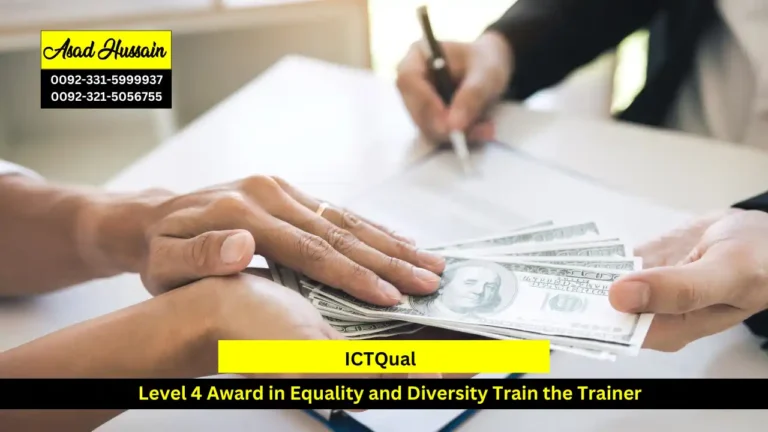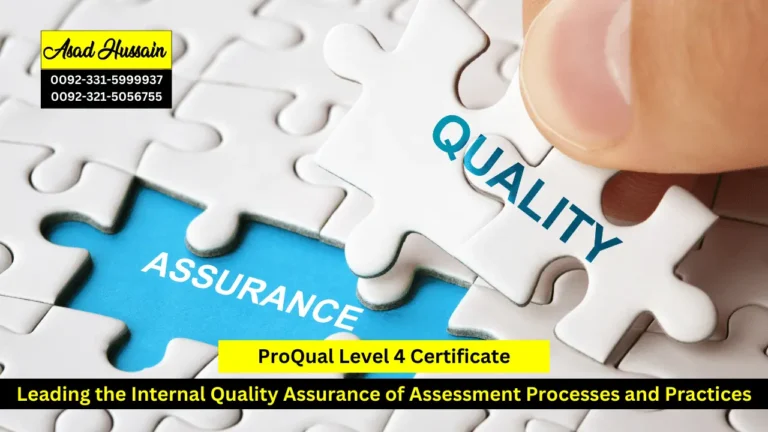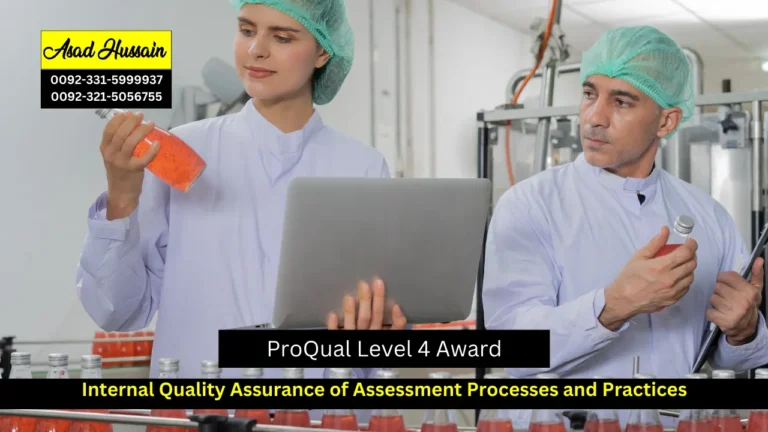In today’s fast-paced world, effective leadership is not just a skill but a crucial asset for organizational success. The Level 4 Award in Leadership Train the Trainer stands out as a pivotal program designed to equip aspiring trainers with the expertise to cultivate the leaders of tomorrow.
The Level 4 Award in Leadership Train the Trainer is meticulously crafted to provide comprehensive training on leadership principles and effective training methodologies. Participants delve into the core aspects of leadership theory, practical applications, and the art of imparting these skills to others.
The Level 4 Award in Leadership Train the Trainer is more than just a certification—it’s a gateway to fostering effective leadership and training excellence. By investing in this program, individuals not only elevate their own professional capabilities but also contribute significantly to the development of future leaders. Embrace the opportunity to empower others and make a lasting impact in the realm of leadership training
Program Highlights
Mandatory Units
- Foundations of Leadership Training
- Communication Skills for Trainers
- Leadership Development Strategies
- Team Dynamics and Collaboration
- Conflict Resolution and Negotiation
- Strategic Leadership and Decision-Making
- Motivation and Employee Engagement
- Coaching and Mentoring
- Leadership Ethics and Integrity
- Training Design and Delivery
- Assessment and Feedback
- Continuous Professional Development
- Candidates applying for this course typically need to have a minimum educational qualification equivalent to a high school diploma or its international equivalent. Some training providers may require candidates to hold a bachelor’s degree or higher in a relevant field.
- While specific work experience requirements may vary, candidates are often expected to have a background in leadership, management, or a related field. This may include previous roles in supervisory positions, team leadership, project management, or other leadership roles within organizations.
- Candidates should possess fundamental leadership skills and competencies, including effective communication, problem-solving, decision-making, and interpersonal skills. They should demonstrate an understanding of leadership principles and practices relevant to their industry or sector.
- While prior training or teaching experience is not always required, candidates with experience in facilitating workshops, delivering presentations, or conducting training sessions may have an advantage. Experience in adult education, instructional design, or workplace training can be particularly beneficial.
- Candidates should demonstrate a commitment to ongoing learning and professional development in the field of leadership training and development. They should be motivated to enhance their skills, knowledge, and expertise in leadership to advance their careers and contribute to organizational success.
Foundations of Leadership Training
- Understand key theories and models of leadership.
- Analyze the role of leadership in organizational success.
- Evaluate different leadership styles and their effectiveness in various contexts.
Communication Skills for Trainers
- Develop effective verbal and non-verbal communication techniques.
- Enhance active listening skills crucial for effective training delivery.
- Adapt communication style to meet the needs of diverse audiences.
Leadership Development Strategies
- Design personalized leadership development plans.
- Implement strategies for identifying and nurturing leadership potential.
- Evaluate the effectiveness of leadership development programs.
Team Dynamics and Collaboration
- Analyze team dynamics and their impact on organizational performance.
- Foster a collaborative team environment through effective leadership.
- Implement strategies to enhance team cohesion and productivity.
Conflict Resolution and Negotiation
- Identify sources of conflict within teams and organizations.
- Apply negotiation techniques to achieve mutually beneficial outcomes.
- Develop conflict resolution strategies to promote harmonious work environments.
Strategic Leadership and Decision-Making
- Analyze strategic leadership theories and their practical applications.
- Make informed decisions based on strategic analysis and organizational goals.
- Implement strategies to align leadership decisions with long-term objectives.
Motivation and Employee Engagement
- Understand motivational theories and their implications for employee engagement.
- Implement strategies to enhance employee motivation and morale.
- Evaluate the impact of motivational techniques on organizational performance.
Coaching and Mentoring
- Develop coaching and mentoring skills to support leadership development.
- Provide constructive feedback and guidance to individuals and teams.
- Foster a culture of continuous learning and professional growth.
Leadership Ethics and Integrity
- Analyze ethical dilemmas in leadership and training contexts.
- Uphold ethical standards and promote integrity in leadership practices.
- Apply ethical decision-making frameworks to resolve ethical challenges.
Training Design and Delivery
- Design effective training programs aligned with organizational objectives.
- Develop engaging training materials and activities.
- Deliver impactful training sessions using appropriate methodologies.
Assessment and Feedback
- Develop assessment tools to measure learning outcomes and training effectiveness.
- Provide constructive feedback to enhance learner performance and engagement.
- Use assessment data to continuously improve training programs.
Continuous Professional Development
- Identify opportunities for continuous learning and professional growth.
- Develop a personal development plan to enhance leadership and training skills.
- Engage in reflective practice to evaluate and improve training practices over time.
The Level 4 Award in Leadership Train the Trainer course is designed for individuals who aspire to excel in leadership development and training roles across various industries. This course is ideal for professionals seeking to enhance their leadership skills and impart them effectively to others. It caters to aspiring trainers, HR professionals, managers, and educators who are passionate about fostering leadership excellence within their organizations. Whether you are looking to advance your career in training and development, initiate leadership programs, or enhance your coaching abilities, this course equips you with the knowledge and practical skills needed to succeed. It is tailored for those committed to making a positive impact on organizational success through effective leadership training and mentorship.







